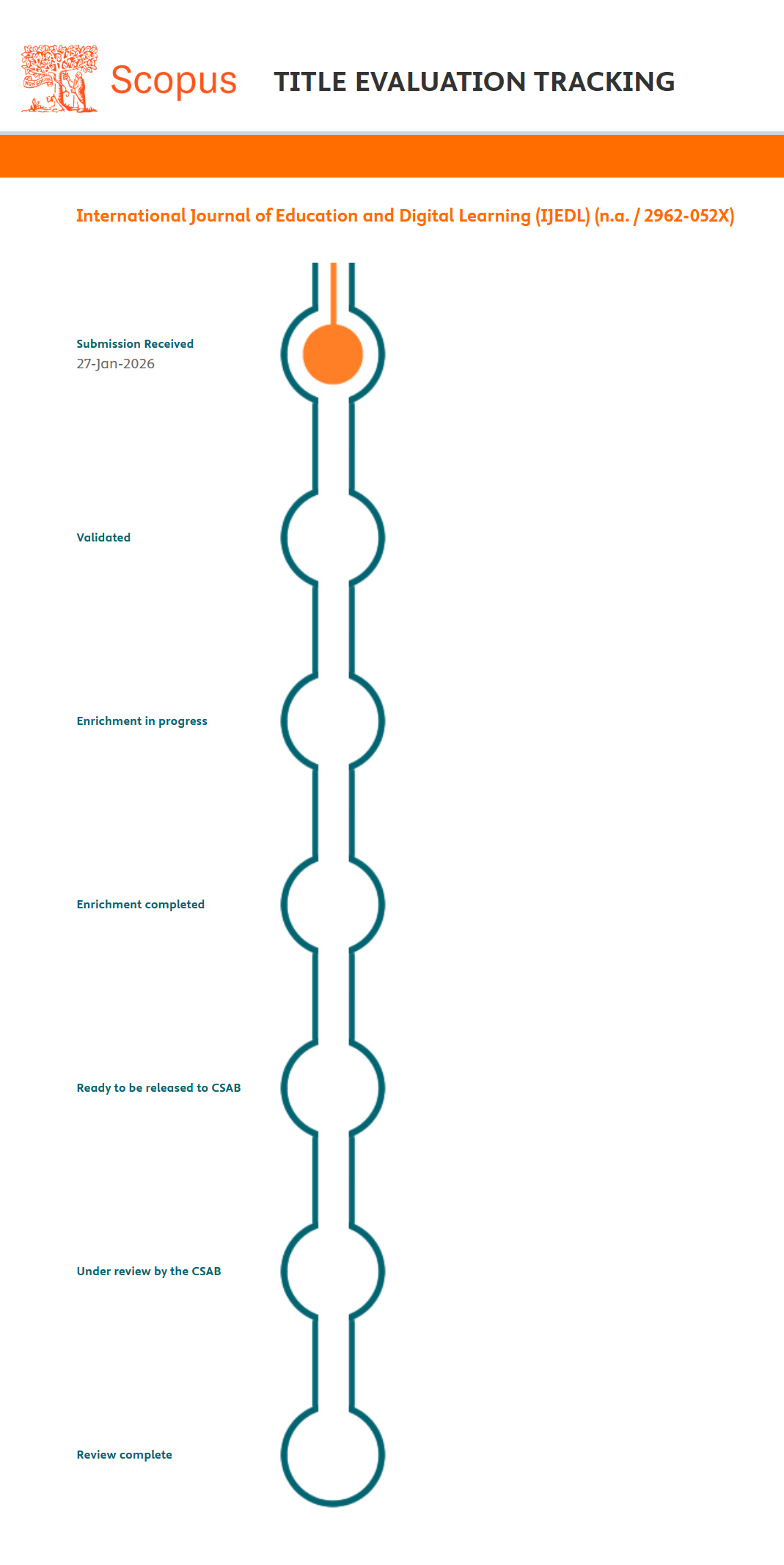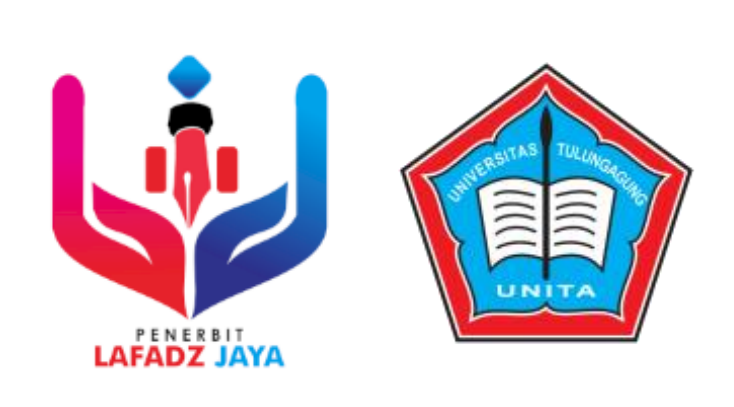The Role of Children's Literature In Developing Character In Globalitation Era
DOI:
https://doi.org/10.47353/ijedl.v1i3.16Keywords:
Children's, literature, children's characterAbstract
This article aims to describe children's literature as character development, it is known that children's literature is considered to be able to shape character effectively because the values contained contain morals that are not conveyed directly, but through stories and metaphors so that the educational process takes place fun and not patronizing. Children's literature is able to support the growth and development of children in terms of emotional, intellectual, imagination, social sense, religious, language development and reading habits.
Downloads
References
Aryanto, S. (2018). Pengembangan Ecopreneurship di Sekolah Dasar Inklusif. Bandung: Rumah Pena Pustaka
Aryanto S., Markum., Pratiwi. V., & Husada. C. (2019). Ecobrick sebagai Sarana Pengembangan Diri Berbasis Ecopreneurship di Sekolah Dasar. Jurnal Dwija Cendikia, 3 (1), 93 – 101.
Aryanto, S. & Syaodih, E. (2017). Development of Ecoprenuership in Primary School. International E-Journal of Advances in Education, Turkey 99 (3), 597-602
Balda, J. B., & Mora, F. (2011). Adapting leadership theory and practice for the networked, Millennial generation. Journal of Leadership Studies, 5(3), 13-24
Basir, Udjang Pr. M. (2017). Aspek “Kesastraan” Dalam Kurikulum Bahasa Indonesia: Sejumlah Problematika Terstruktur. Proceeding Seminar Nasional PS PBSI FKIP Universitas Jembe, tema Bahasa dan Sastra Indonesia dalam Konteks Global. 227-236
Creswell, J. (2015). Riset pendidikan perencanaan, pelaksanaan, dan evaluasi riset kualitatif dan kuantitatif (edisi kelima). Yogyakarta: Pustaka Pelajar Nurgiyantoro,
Burhan. (2013). Sastra Anak Pengantar Pemahaman Dunia Anak. Yogyakarta: Gadjah Mada University Press.
Cristina, S. (2017). Ecopreneurship and Ecopreneurs: Limits, Trends and Characteristics. Sustainability. 4 (9), 1-12
Dixon & Clifford. (2006). Ecopreneurship – a New Approach to Managing the Triple Bottom Line. Journal of Organizational Change Management. 20 (3) , 326-245
Mursidik, E.M., Samsiyah, N., & Rudyanto, H.E. (2015). Kemampuan berpikir kreatif dalam memecahkan masalah matematika open-ended ditinjau dari tingkat kemampuan matematika pada siswa sekolah dasar. Journal Pedagogia, 4 (1), 23 – 33.
Oster, G. (2009). Emergent innovation: A new strategic paradigm. Journal of Strategic Leadership, 2(1), 40-56.
Purwaningrum, J.P. (2016). Mengembangkan kemampuan berpikir kreatif matematis melalui discovery learning berbasis scientific approach. Jurnal Refleksi Edukatika, 6 (2), 145 – 157.
Rhodes, M. (1961). An analysis of creativity. The Phi Delta Kappan, 42 (7), 305 – 310.
Schaltegger, S. 2002. A Framework for Ecopreneurship. Greener Management International, 20 (38) 45-58
Schaper, M. 2002. The Essence of Ecopreneurship. Greener Management International, 20 (38) 26-30
Statistik, B. P. (2016). Statistik Pemuda Indonesia 2015: Hasil Survei Sosial Ekonomi Nasional (Susenas), Badan Pusat Statistik, Jakarta. Indonesia.
Sukoco & Muhyi. (2002). Ecopreneurship dalam Menumbuhkan Usaha Berwawasan Lingkungan pada Sentra Industri Penyamakan Kulit Sukaregang Kabupaten Garut. Sosiohumainiora, 17 (2) 156-165
Suwondo, Tirto. (2001). Ihwal Pengajaran Sastra di Sekolah Dasar. Jakarta: Pusat Bahasa Departemen Pendidikan Nasional.
Tarigan, Henry Guntur. (2011). Dasar-Dasar Psikosastra. Bandung: Angkasa.
Teeuw, A. (2003). Sastra dan Ilmu Sastra. Jakarta: Pustaka Jaya.
Downloads
Published
How to Cite
Issue
Section
License
Copyright (c) 2023 Martina Girsang, Yoana Nazara, Yesika Winata Nababan, Masdelima Purba, Divan Oktavianus Ginting

This work is licensed under a Creative Commons Attribution-ShareAlike 4.0 International License.












